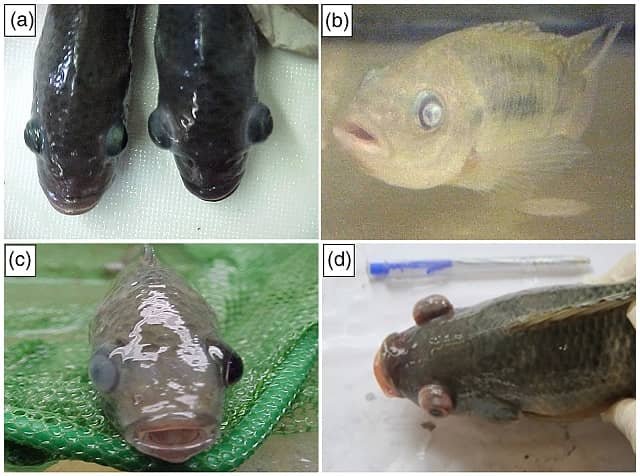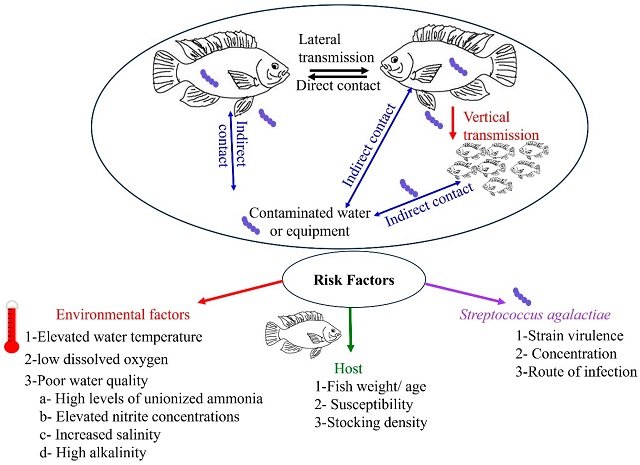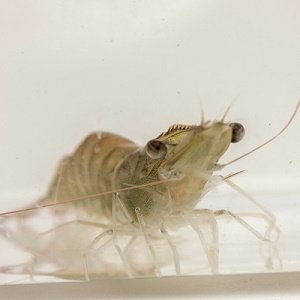
Tilapia Aquaculture is a Vital Industry, but Fish Health Remains a Major Concern. Streptococcus agalactiae, a bacterial pathogen, causes significant economic losses due to streptococcosis, a disease affecting tilapia farms. Researchers are constantly exploring strategies to improve fish health and disease resistance.
A recent study published in the journal Fishes by scientists from the State University of Londrina (Brazil) sheds light on the potential of monoglycerides as a nutritional additive for tilapia. They evaluated the effects of supplementing the diet of juvenile Nile tilapia (Oreochromis niloticus) with a blend of monoglycerides (glycerides bound to a fatty acid molecule).
The Challenge: Pathogens and Antibiotic Resistance
Various bacterial pathogens pose significant threats to tilapia farms, causing outbreaks with devastating mortality rates. Among them are Streptococcus agalactiae (which causes streptococcosis) and Francisella orientalis (which causes francisellosis).
Streptococcosis, prevalent in warmer months, affects various fish species and presents symptoms such as pop-eye (exophthalmia), blood poisoning (septicemia), and inflammation of the brain and spinal cord (meningoencephalitis). Francisellosis, on the other hand, thrives in cooler temperatures and is associated with chronic inflammation in internal organs and muscle atrophy in adult fish.
The situation is further complicated by the emergence of multi-drug-resistant bacterial strains, rendering traditional antibiotic treatments ineffective. This highlights the urgent need for alternative disease control strategies.
Nutritional Alternatives: A Sustainable Path Forward
The need for sustainable alternatives to antibiotics has driven research into nutritional additives such as probiotics, prebiotics, and organic acids. These additives offer a promising approach to:
- Stimulate immune response: Helping fish fight infections naturally.
- Improve growth performance: Leading to healthier fish and increased farm productivity.
- Reduce antibiotic dependency: Promoting more sustainable aquaculture practices.
Previous studies by our team have demonstrated the efficacy of organic acids in improving feed conversion, immune response, and disease resistance in juvenile Nile tilapia challenged with F. orientalis. Similarly positive results were observed against S. agalactiae using Enterococcus faecium.
Monoglycerides: A Promising Nutritional Weapon
Monoglycerides (MGL) are a new class of nutritional additives with exciting potential. These molecules, formed by the esterification of a fatty acid and glycerol, exhibit several key properties:
Stay Always Informed
Join our communities to instantly receive the most important news, reports, and analysis from the aquaculture industry.
- Antimicrobial activity: They can have bacteriostatic (inhibit bacterial growth) or bactericidal (kill bacteria) effects against both Gram-positive and Gram-negative bacteria.
- Immunomodulatory effects: They can influence the fish’s immune system, further enhancing their ability to fight infections.
- pH independence: They remain active across a wide range of pH levels, ensuring efficacy throughout the digestive tract.
- Resistance to enzymatic degradation: This allows them to reach their target sites within the fish’s body.
- Systemic activity: They can exert their effects both within the intestine and throughout the body.
This study evaluated the effects of supplementing Nile tilapia diets with a monoglyceride blend over 20 days. The fish weighed approximately 20 grams.
Better Growth and Lower Mortality
The research revealed intriguing results. Tilapia fed diets supplemented with monoglycerides showed:
- Improved weight gain: Compared to the control group, fish that received monoglycerides exhibited significant weight gain.
- Better feed conversion: Treated fish utilized feed more efficiently, resulting in higher production efficiency.
- Reduced mortality from Streptococcus agalactiae: Significantly lower mortality rates were observed in groups exposed to this specific pathogen after receiving monoglyceride supplementation. This indicates potential for mitigating streptococcal disease outbreaks.
Modulation of the Gut Microbiome
The study also explored the impact of monoglycerides on the gut microbiome, a complex ecosystem of bacteria that plays a crucial role in fish health. While the diversity of gut bacteria was not significantly altered, there was a notable shift:
- Reduction in the presence of opportunistic bacteria: These bacteria can contribute to secondary infections. The monoglyceride supplement potentially reduces their prevalence, protecting fish health.
- Increase in beneficial bacteria: The study observed an increase in beneficial gut bacteria, which could contribute to overall fish health and immune function.
Study Limitations
The study focused on short-term effects and did not observe significant changes in innate immunity parameters. Further research is needed to explore the long-term effects and potential mechanisms by which monoglycerides enhance disease resistance.
Conclusion
This study provides encouraging evidence of the potential of monoglycerides as a nutritional additive for tilapia farms. Improved growth performance, reduced mortality from Streptococcus agalactiae, and a shift toward a healthier gut microbiome suggest a promising strategy for enhancing tilapia health and farm productivity. Further research is warranted to fully understand the long-term effects and underlying mechanisms, paving the way for the potential application of monoglycerides in tilapia aquaculture.
The study was funded by the National Council for Scientific and Technological Development (CNPq) and the Coordination of Superior Level Staff Improvement (CAPES).
Reference (open access)
Ferrari, N.A.; Mainardi, R.M.; Silva, M.B.d.; Guimarães, G.D.; Takashe, J.V.G.; de Oliveira Junior, A.G.; Hayashi, R.M.; Di Santis, G.W.; Pereira, U.d.P. Effect of a Monoglyceride Blend in Nile Tilapia Growth Performance, Immunity, Gut Microbiota, and Resistance to Challenge against Streptoccocosis and Francisellosis. Fishes 2024, 9, 351. https://doi.org/10.3390/fishes9090351
Editor at the digital magazine AquaHoy. He holds a degree in Aquaculture Biology from the National University of Santa (UNS) and a Master’s degree in Science and Innovation Management from the Polytechnic University of Valencia, with postgraduate diplomas in Business Innovation and Innovation Management. He possesses extensive experience in the aquaculture and fisheries sector, having led the Fisheries Innovation Unit of the National Program for Innovation in Fisheries and Aquaculture (PNIPA). He has served as a senior consultant in technology watch, an innovation project formulator and advisor, and a lecturer at UNS. He is a member of the Peruvian College of Biologists and was recognized by the World Aquaculture Society (WAS) in 2016 for his contribution to aquaculture.




